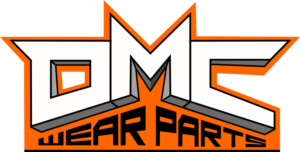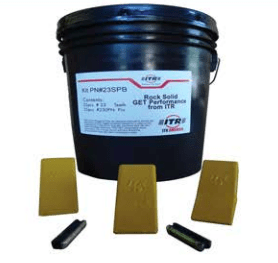
High-quality bucket teeth are an essential part of a good excavator or backhoe. They make digging smooth and efficient while minimizing downtime to get the job done quickly. Bucket teeth are deceptively simple. They use abrasion to remove many different kinds of materials from job sites. Teeth are the final, most crucial step in a complex mechanical process when it comes to digging and moving ground and debris.
Not all bucket teeth are created equal. The job site can stress many kinds of heavy machinery; bucket teeth must deal with abrasion and overall resistance from rough materials like stone and gravel. Durability is a critical element of their operation.
Construction Equipment Bucket Teeth
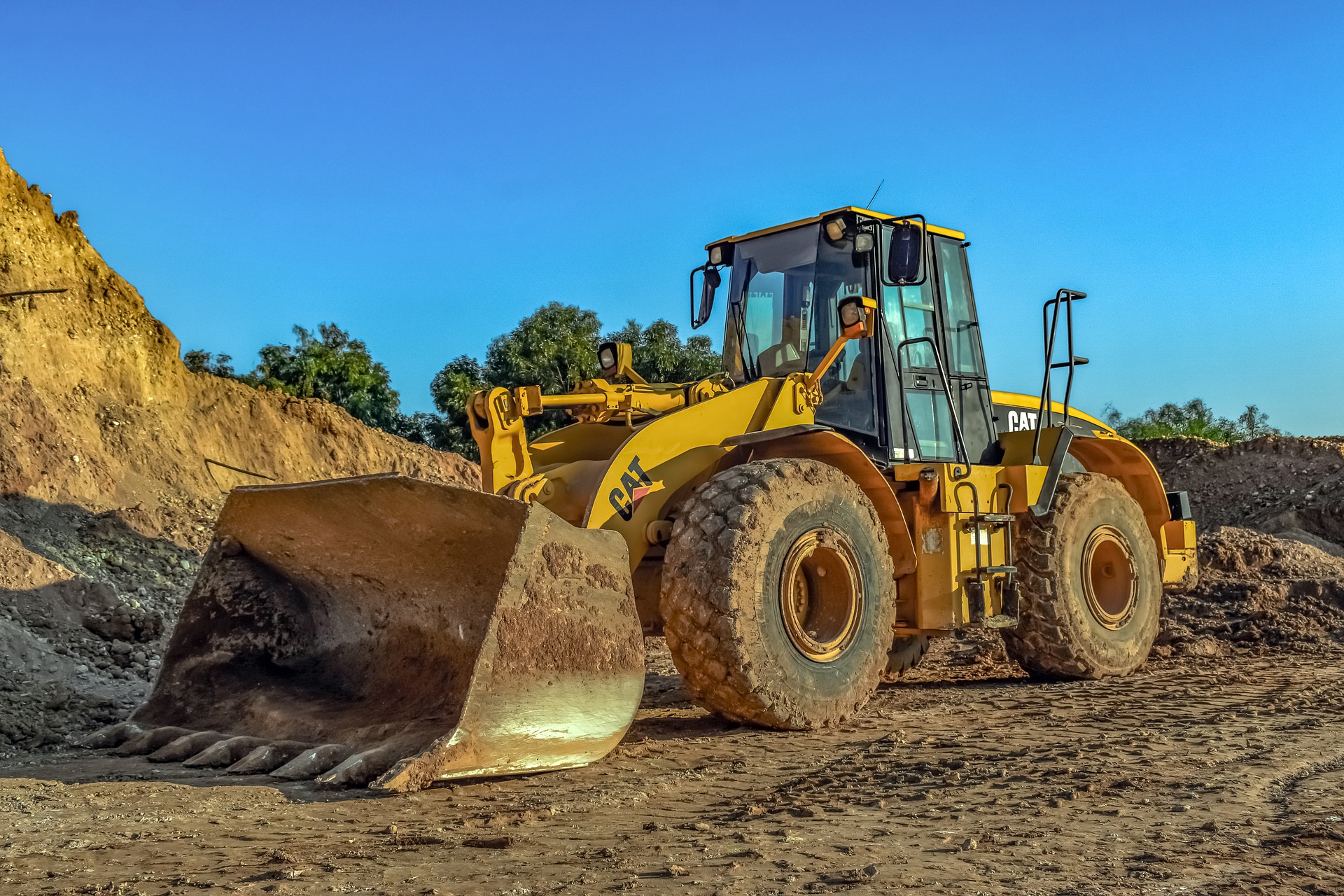 For excavators, the teeth enable the excavator bucket to leverage itself under loads of dirt, stone, and other materials for removal. In other words, bucket teeth allow for effective digging. For backhoes, the teeth fulfill a similar purpose. They allow easy bucket loading for relocating large plants (like trees and stumps), rocks, and building materials.
For excavators, the teeth enable the excavator bucket to leverage itself under loads of dirt, stone, and other materials for removal. In other words, bucket teeth allow for effective digging. For backhoes, the teeth fulfill a similar purpose. They allow easy bucket loading for relocating large plants (like trees and stumps), rocks, and building materials.
Loaders use bucket teeth primarily for leverage. This lets them pry and lift heavy, sometimes tricky loads. A dozer’s teeth allow the machine to quickly push through large amounts of earth. Consequently, good bucket teeth give dozers faster cycle times. Finally, a grader uses bucket teeth to smooth out surfaces like unpaved roads and farmland.
Ground Engaging Tools (G.E.T.)
Bucket teeth comprise a class of parts called “ground engaging tools” or G.E.T. These metal components contact the ground during work. Therefore, they do the vital job of moving earth and debris around the job site via penetration and abrasion. Besides bucket teeth, some examples of G.E.T. include bulldozer blades, plows, and ripper shanks in earthmoving equipment.
Types of Bucket Teeth
No matter the shape of the teeth, they’ll be made of either cast or forged metal. Because casting metal is less labor-intensive, it provides high cost-effectiveness. Manufacturers often cast teeth to be self-sharpening.
Chisel Teeth
If you’re doing a variety of tasks with your machine, chisel teeth are a great choice. Chisel teeth specialize in providing good leverage for most loading and landscaping jobs. These are considered the “jack-off-all-trades” teeth. Unfortunately, chisel teeth don’t hold up well with more demanding jobs. Their penetration ability is modest, making them less than optimal for digging into stone and hard ground.
Single and Twin-Tiger Teeth
For more specialized jobs, single and twin tiger teeth provide the best penetration. Single tiger teeth come to a fierce point and look like a sharp tooth (hence the name). They provide more substantial penetration than chisel teeth. However, they have a lot of wear surface, meaning they have weaker wear resistance over time. Twin tiger teeth, as you might assume, fork out into two points. They have the strongest penetration of all chisel types, and because the work isn’t fixed on one point, they have a longer wear life than single tiger teeth. However, the trade-off for twin tiger teeth is less leverage for your machine.
Rock Chisel Teeth
When dealing with challenging surfaces, rock chisel teeth are your best bet. They provide excellent leverage and incredible wear resistance. These teeth are usually made with highly durable materials like alloy steel with molybdenum. They are self sharpening, meaning they won’t degrade over time like other types of teeth. Naturally, this efficiency usually comes at a higher cost.
 Finding The Right Replacement Bucket Teeth
Finding The Right Replacement Bucket Teeth
Depending on the machine and the type of work you do, the perfect replacement teeth will be different. Getting the right kind for the job (and checking the size of the roll pin and shank) are crucial considerations. If you are unsure of which replacement teeth to get, contact DMC Wear Parts’ aftermarket specialists, and they will help you find the perfect fit for the job.
Contact Us – We Are Here To Help
With over two decades of experience, our undercarriage parts experts know the perfect parts for your equipment. Let us put our knowledge to work for you!
![]() Quick & Free Quotes
Quick & Free Quotes
![]() (605) 840-8082
(605) 840-8082
![]() American Owned
American Owned
Extending The Wear Life Of Your Bucket Teeth
Usage habits and tooth material affect how long you can go before needing replacement teeth for your machine. Fortunately, you can use your bucket teeth for a long time with proper usage habits. Using the correct bucket teeth for the job is the most important thing you can do to extend your wear life. While some types inevitably wear down faster, using the wrong kind for a particular job site can wear parts down unnecessarily fast.
How Do You Replace Teeth on a Bucket?
Installing replacement teeth is surprisingly easy. Depending on the tooth, you’ll need to install a top or side roll pin. New bucket teeth usually come with a punch that’s a perfect fit for the pin; if they don’t, you’ll need to purchase one that’s the right size.
- One by one, remove the old teeth by placing the punch rod in the pin.
- Use a hammer to push the old pin through.
- Wiggle the old teeth until they are free from the shank.
- Remove any dirt or rust on the shank.
- Slide the new teeth onto the shank and hammer the pins in.
Note that you’ll need an excavator adapter for machines without shanks built-in. Some may require pins, while others need to be welded on.
Bucket Teeth Replacements for Top Brands (Bobcat, John Deere, CAT)
For dozers, excavators, loaders, and backhoes, you can easily find replacement bucket teeth online, plus any attachments you’ll need. Fortunately, you don’t need to go straight to the manufacturers to pay a premium. Suppose you’re looking for a new set of teeth for a Caterpillar excavator bucket, a John Deere backhoe, or a Bobcat loader. In that case, you can get an aftermarket set from DMC’s vast inventory of aftermarket equipment parts.
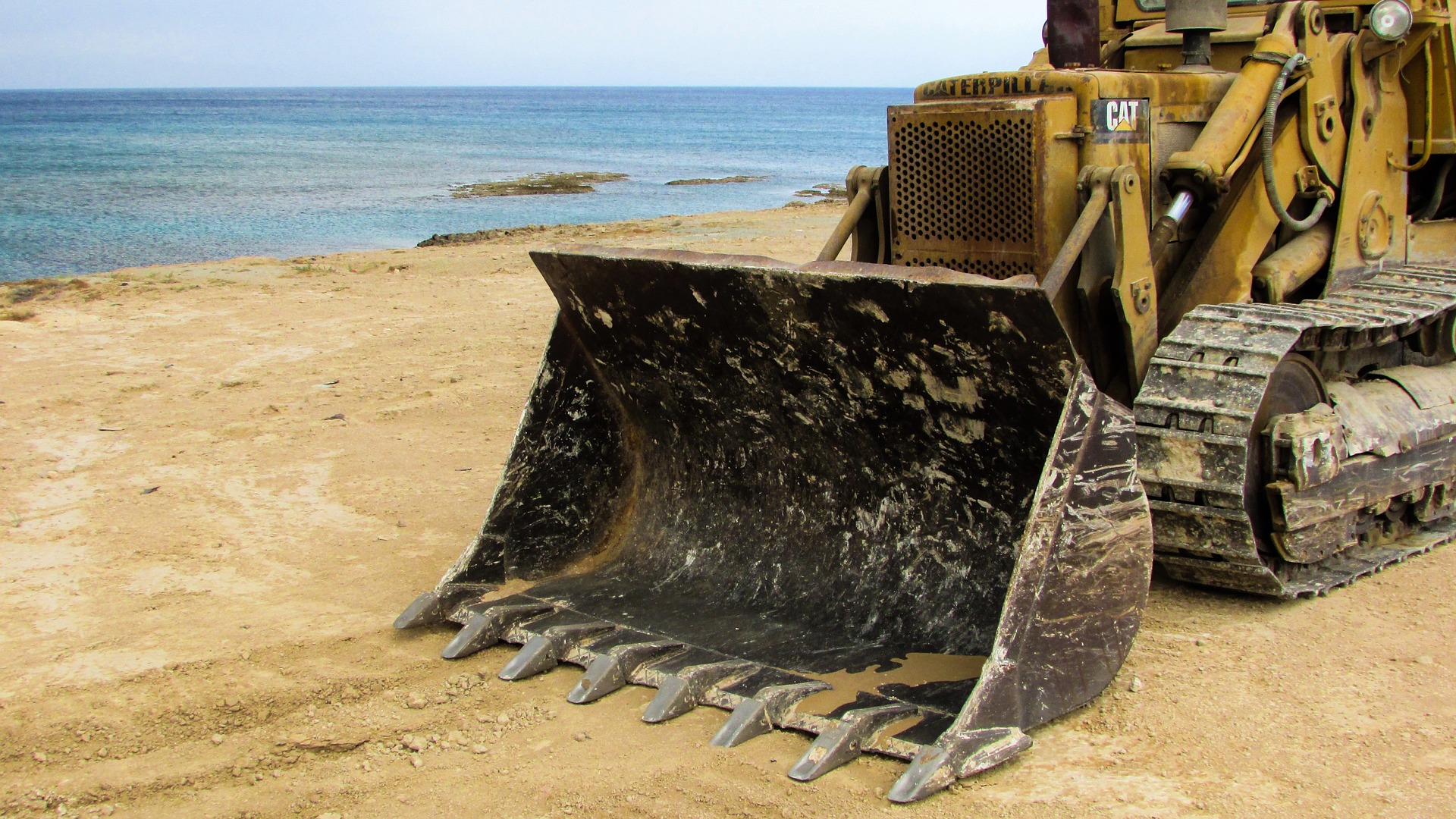
Contact DMC’s Aftermarket Parts Specialists Today
Whether you need bucket teeth for digging up dirt or strenuous rock applications, you can save a good chunk of cash going with an aftermarket option. Consult with one of DMC’s aftermarket specialists today!
*All uses of manufacturers’ names, symbols, brands, and descriptions are used for reference purposes only and are not implied that any part offered is the product of these manufacturers.
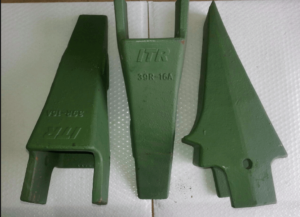 Finding The Right Replacement Bucket Teeth
Finding The Right Replacement Bucket Teeth